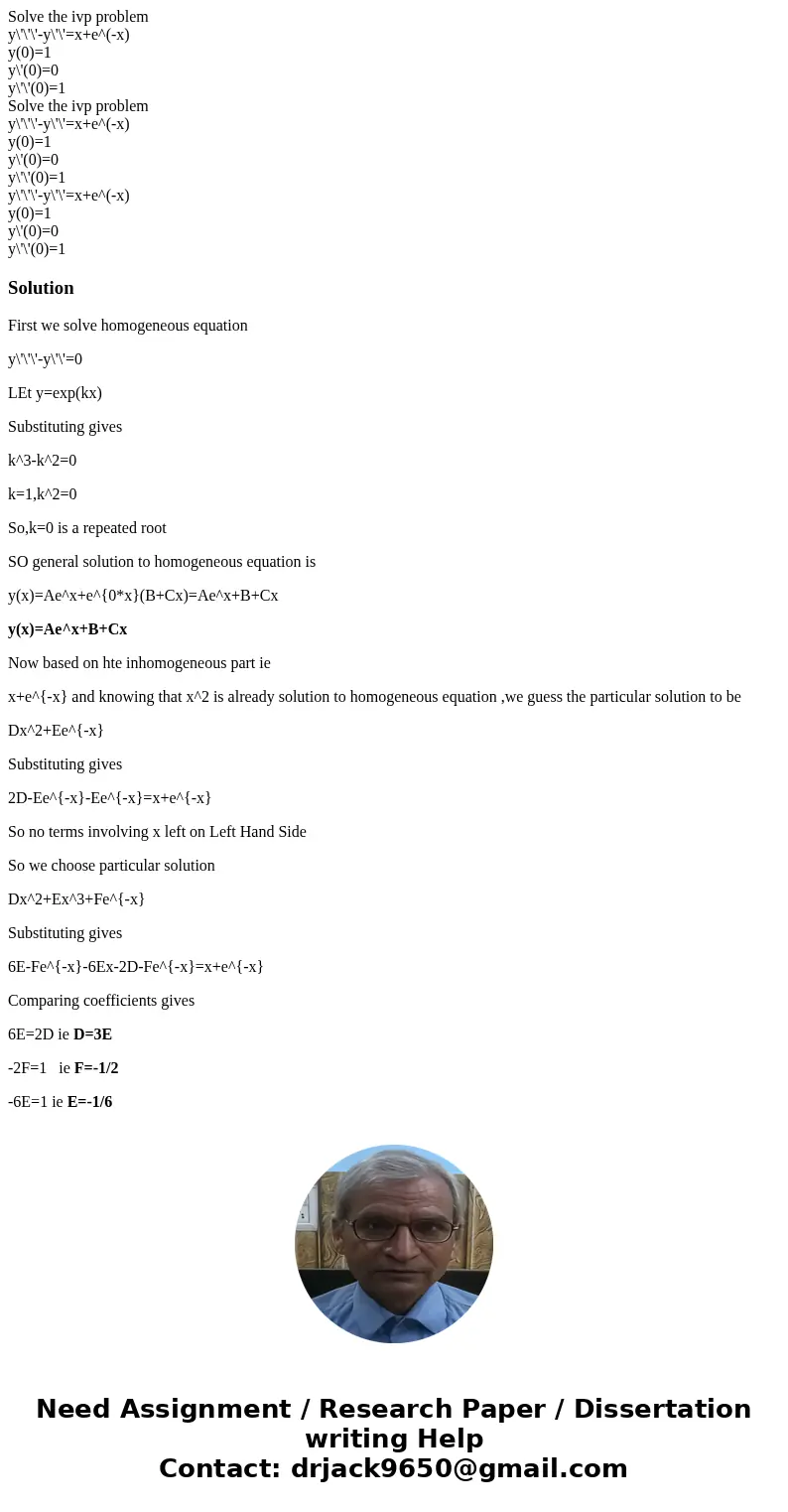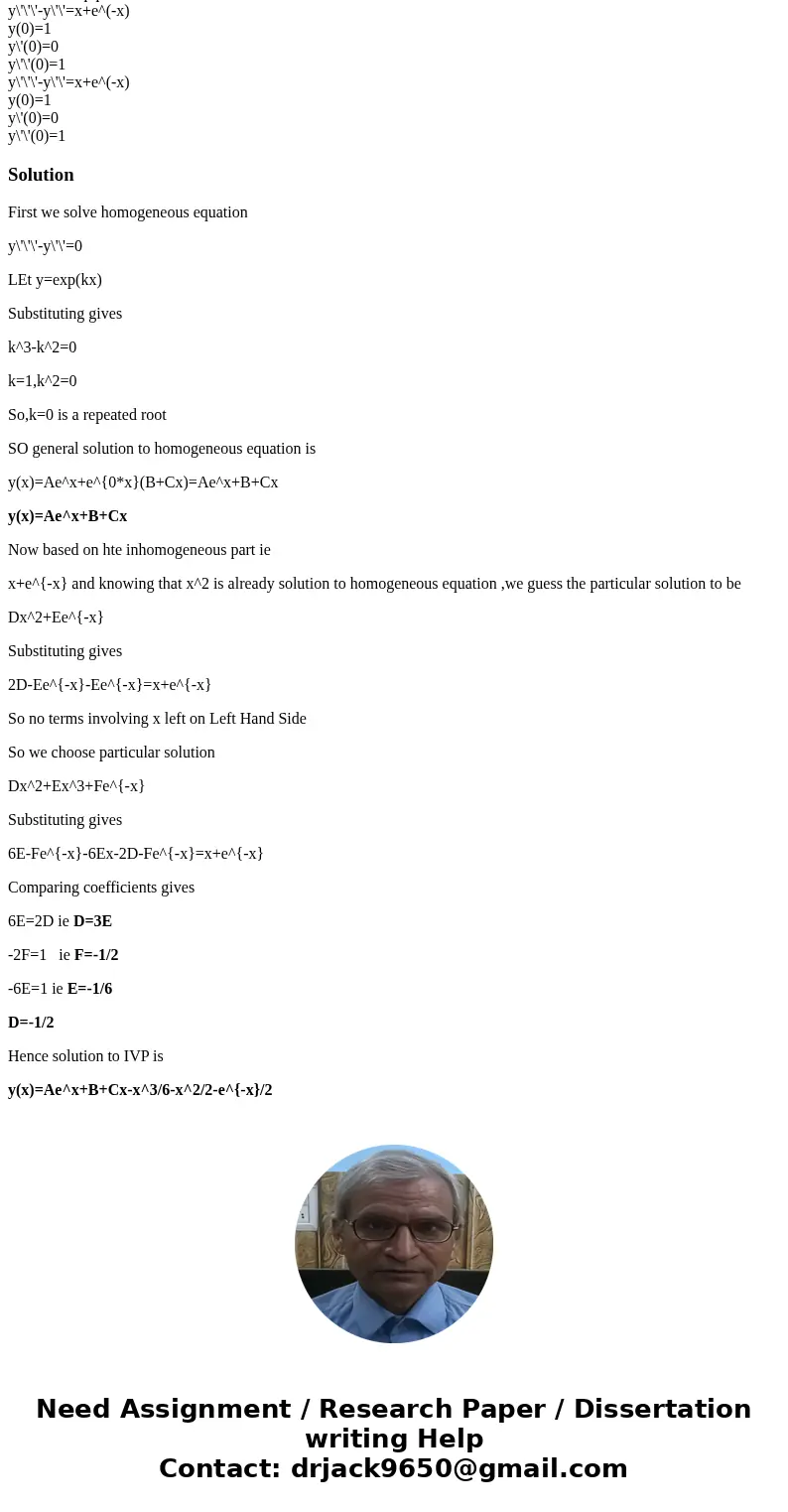Solve the ivp problem yyxex y01 y00 y01 Solve the ivp proble
Solve the ivp problem
y\'\'\'-y\'\'=x+e^(-x)
y(0)=1
y\'(0)=0
y\'\'(0)=1
Solve the ivp problem
y\'\'\'-y\'\'=x+e^(-x)
y(0)=1
y\'(0)=0
y\'\'(0)=1
y\'\'\'-y\'\'=x+e^(-x)
y(0)=1
y\'(0)=0
y\'\'(0)=1
Solution
First we solve homogeneous equation
y\'\'\'-y\'\'=0
LEt y=exp(kx)
Substituting gives
k^3-k^2=0
k=1,k^2=0
So,k=0 is a repeated root
SO general solution to homogeneous equation is
y(x)=Ae^x+e^{0*x}(B+Cx)=Ae^x+B+Cx
y(x)=Ae^x+B+Cx
Now based on hte inhomogeneous part ie
x+e^{-x} and knowing that x^2 is already solution to homogeneous equation ,we guess the particular solution to be
Dx^2+Ee^{-x}
Substituting gives
2D-Ee^{-x}-Ee^{-x}=x+e^{-x}
So no terms involving x left on Left Hand Side
So we choose particular solution
Dx^2+Ex^3+Fe^{-x}
Substituting gives
6E-Fe^{-x}-6Ex-2D-Fe^{-x}=x+e^{-x}
Comparing coefficients gives
6E=2D ie D=3E
-2F=1 ie F=-1/2
-6E=1 ie E=-1/6
D=-1/2
Hence solution to IVP is
y(x)=Ae^x+B+Cx-x^3/6-x^2/2-e^{-x}/2


 Homework Sourse
Homework Sourse